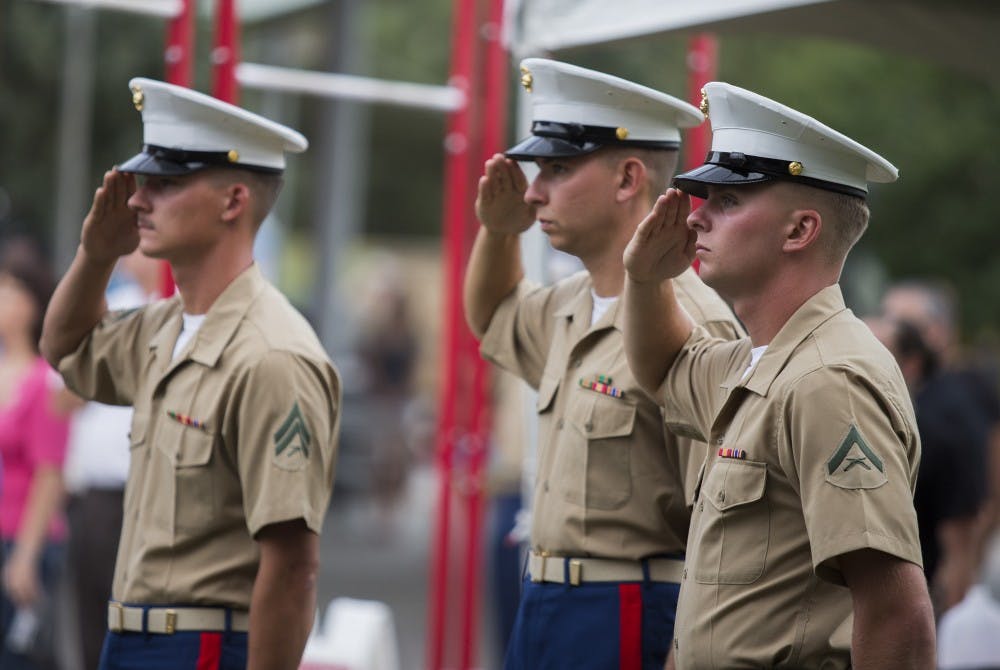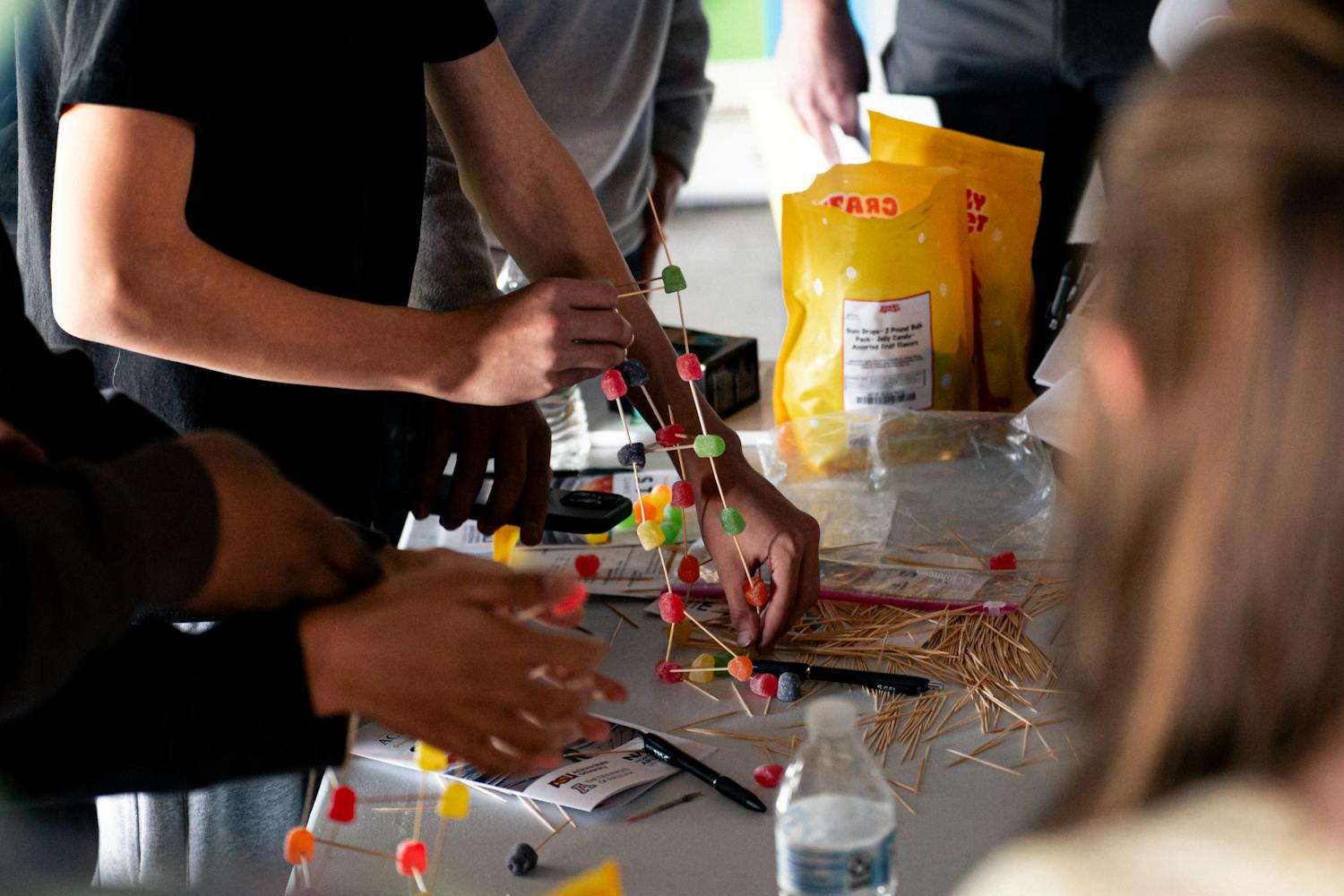The suicide rate for veterans is about twice that of non-veterans in Arizona, according to a report released this month by the ASU Center for Violence Prevention and Community Safety at the Watts College of Public Service and Community Solutions.
The report, titled, “Suicides Involving Veterans” examined 3,601 suicides recorded by the Arizona Violent Death Reporting System between 2015 and 2017.
David Choate, a senior research analyst for the Center for Violence Prevention and Community Safety, said reducing the rate of veteran suicide is complicated, but one cause of higher veteran suicide rates in some counties versus others is access to resources, including support from other veterans.
“The hope would be that the data can say, ‘Here's the issue,’” Choate said. “Others could use that as justification to say (they) need to gather resources to address this issue and put in a veterans clinic specifically to serve that population in that region. That would be a terrific use of the data and what we're trying to communicate.”
Mohave County, a large and rural county, had the highest veteran suicide rate in Arizona, according to the report.
Kelli Donley Williams, a suicide prevention specialist with Arizona Health Care Cost Containment System, said while there may not be easily accessible behavioral health professionals in every veteran’s county, there are other options veterans can turn to for help.
“All 15 counties in Arizona have veteran service organizations such as the (Masonic) Lodge or Veterans of Foreign Wars or the American Legion,” Williams said. “Those entities are specifically looking to work with their members on a wide variety of other social issues including suicidal thinking.”
Williams said looking at the problem of veteran suicide, and suicide generally in Arizona, requires creative solutions outside of traditional resources.
“What we really try to encourage is individuals who are suicidal … regardless of how old they are, if they served in the military or not, to find a community that they're comfortable with to connect with other individuals,” Williams said.
READ MORE: ASU hosts career workshop to help veterans transition from the military
Capt. Steven Borden, director of veteran services at the Pat Tillman Veterans Center, said the center and its ASU partners work to connect veteran students to educational and health resources and support veterans through college.
One way the center does this is through a veteran liaison that works with ASU Counseling Services who has served in the military and connects with students over a similar veteran mindset, he said.
“We think the best thing to do is get them connected with counseling right away, rather than wait for them to be able to get connected with services from the VA,” Borden said. “We want to take them over or have them go over and meet with ASU counseling today.”
The report also states that, “suicide victims who were veterans were less often reported to have had substance abuse and interpersonal problems or conflicts than non-veteran victims.”
Borden said the disparity between high rates of veteran suicide and the propensity for veterans to not report life difficulties is troubling to him and is connected to veterans being conditioned through their military service to not ask for help.
READ MORE: ASU hosts events to celebrate military service in honor of Veterans Day
“I don't think you have more people committing suicide and they have less issues,” Borden said. “The issues are there, they're just far less likely to talk about them or let others know about them.”
Borden said universities can serve as a way for veterans to reconnect with society, and ASU works to ensure that students do not feel alone in their struggles.
“Having more people interact with veterans in such a way that you're just helping a veteran feel like they are reconnecting with society is the best thing that can be done for them,” Borden said.
“A veteran who is going to school is better connected than a veteran that is in isolation and not getting out of their house.”
Clarification: A previous version of this article had a headline that used insensitive language that did not follow AP style, it has been updated to reflect these changes.
Reach the reporter at tmlane3@asu.edu and follow @tmflane on Twitter.
Like The State Press on Facebook and follow @statepress on Twitter.




